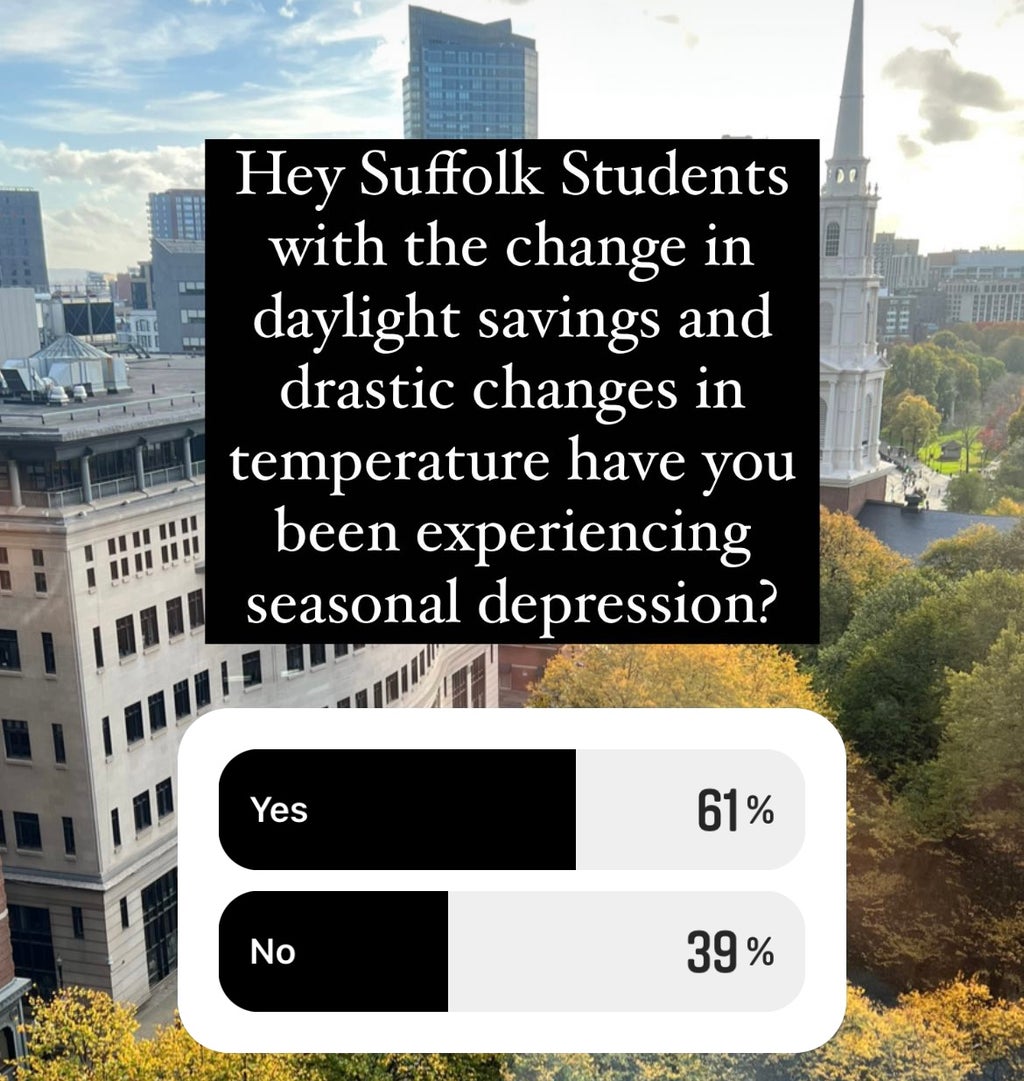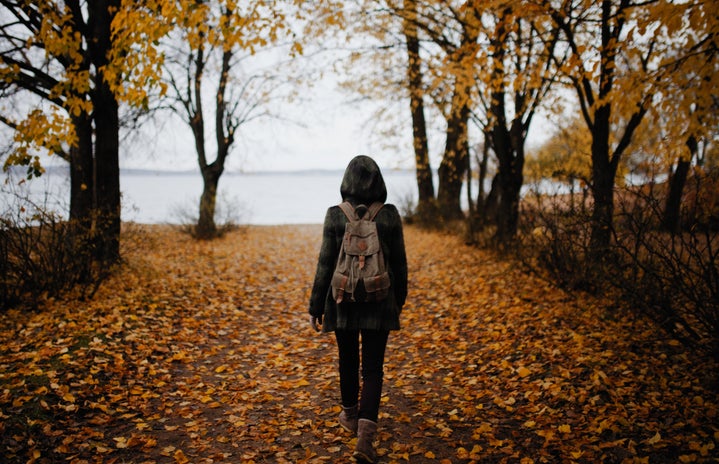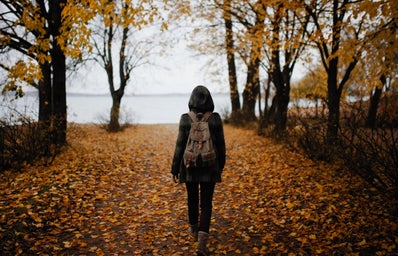Whether you were in the common snapping those final Instagram pictures of the season before you have to be layered up or going out to grab brunch with a few friends on a sunny terrace, you were most likely out and about because of the record-breaking 76 degrees we experienced on Nov. 5 & 6. While this weekend’s weather was unusual for Boston, it is not unheard of.
Boston reached a maximum temperature of 76 degrees which broke the previous record of 73 degrees, set in 1938, 1948, 1959, and 2015, according to The National Weather Service in Boston.
However, as the week of Nov. 7 progressed, we experienced a stark flashback to reality with low temperatures in the ’30s, ’40s, and ’50s.
Fall and winter are already typical times when the symptoms of seasonal depression begin to set in. With the added stress of midterms, many college students start to be affected, and Boston’s weather is not doing us any favors with its rollercoaster of temperatures. According to an article by The Mayo Clinic, seasonal depression is a form of depression that mainly affects us during these colder months because there is less daylight. The lack of daytime disturbs us internally by affecting the body’s melatonin and serotonin levels. Hence, this imbalance can lead to the well-known feelings that we know as ‘seasonal depression.’
With seasonal depression, you can often experience a lack of interest in activities you once enjoyed, suicidal thoughts, difficulty concentrating, weight gain, a lack of energy, and easily being irritated. In November of 2020, Boston had six 70-degree days, according to a transcript of a WGBH public radio broadcast. With the rise in temperatures because of climate change, this will likely become a more common occurrence.
An Instagram poll shows that a significant amount of Suffolk University students felt that because of daylight savings and drastic temperature changes, they have been experiencing seasonal depression.

While we handle the ups and downs this season, here are a few self-care tips to make you prioritize your mental health!
· Invest in a light box or light therapy lamp which mimics outdoor light. According to The Mayo Clinic, just sitting in front of the lamp for just 30 minutes a day can have benefits.
· Sticking to a regular, predictable sleep cycle
· Eating a balanced diet.
· Make sure you go on walks or exercise, as it can increase endorphin release.
· On days when it’s snowy in Boston, and sunny outside, take the time to go outside. The sunlight reflecting off the white snow can increase your exposure to light, easing some symptoms.
In general, take time for yourself. Slow and steady wins the race. Most importantly, remember it’s okay to relax and bundle up with hot cocoa and your favorite show or movie this winter season!


